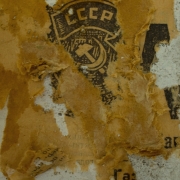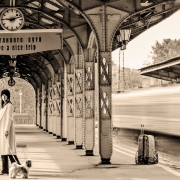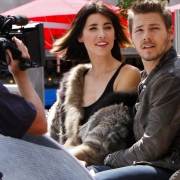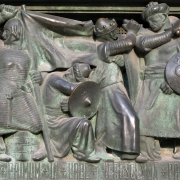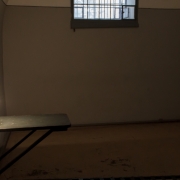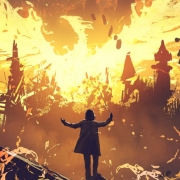I entered this year much in the same way that Kira Argounova enters Petrograd at the beginning of We The Living: hopeful, spirited, and blissfully unaware of the horrors that were to come. When I first read We The Living at the age of fourteen, I was of course struck by the unimaginable desolation of life in the Soviet Union, and Kira’s burden of being forced to live in a world that targets anyone who dares not to submit to the control of the masses.
But never would I have ever thought that I would one day see parallels between Kira’s life and my own. Reading it again at eighteen, the same age as Kira when this story begins, I find myself a different person in a world completely unfamiliar to me. I never wanted to see the slightest bit of similarity between Kira’s world and mine, but now I must watch as history begins to repeat itself once again.
My experience of attending college and interacting with people my age is strikingly similar to Kira’s. As the newest generation of voters, and during an election that is almost an intellectual civil war, everyone is quick to take a side, and quick to proclaim their hatred for anyone who does not agree with them. And the side that recruits the overwhelming majority of devoted followers is the Left. The Left has come to bear a striking similarity to the Proletarian movement, claiming to call for equality while ultimately just retaliating with vengeance against anyone they deem an oppressor.
They pledge their allegiance with the same fanatical, cultish fervor as the Proletarian students of Kira’s world. It seems as though every thought, every conversation, every interaction is tainted by Leftist propaganda. It is the subject constantly bubbling under the surface, threatening to breach at any given moment. And if you do not actively take the pledge, agree with everything said by the Left, and regurgitate every bit of propaganda to anyone who will listen, then, just like a suspected bourgeois, you place a target on your own back.
Like Kira, I refuse to be bound to any collective. I will not adhere myself to either side. My highest priority is my own freedom as an individual, the freedom to choose my beliefs rather than have them chosen for me. But to my peers, that is almost worse than choosing the opposite side. To them, it is incomprehensible. They mistake independence for indifference; they preach that neutrality is even more evil than active hate, all while not even realizing the immensity of their own hate.
Their most powerful tool for controlling their people is guilt. Guilt for being born with any kind of privilege, guilt for not sacrificing yourself to the collective, guilt for even daring to think of yourself. If they can make you feel guilty simply for existing, they can control you. Social media is the perfect vessel for this tactic, a step up from the posters and slogans plastered across the walls of Petrograd. Many of those same slogans can now be seen all over Instagram, along with cartoonish, candy-colored infographics explaining things like systemic racism, white privilege, and the evils of capitalism.
I see these things posted by my own friends, people whose kindness and compassion have been exploited, people who are victims of the extreme guilt-inducing mind control techniques of the Left. I understand why they do it. They have been made to feel so incredibly guilty that they sacrifice their individuality just to try and rid themselves of a fraction of that guilt. In time, the guilt diminishes and is replaced by a sense of self-righteousness that comes from employing the very same tactics that crushed them in the first place. They feel they are doing the right thing, they feel morally just and good. They don’t care if it means losing themselves in the process.
Even I am not immune to the guilt. I am not as solitary as Kira; I rely on the comfort and security that comes with having friends. And when I see my friends shaping their entire identities around Leftist causes, believing in them so fervently that it hurts, I feel guilty. To them, finding out that someone they consider a friend does not buy into all of these same causes would feel like betrayal. I don’t want to cause them that kind of pain.
I’d like to hope my future is not as bleak as Kira’s. To read this book while watching the world morph into it is unnerving. I read about Kira’s experiences as a student and see my own. I watch her struggle to survive in a world that aims to destroy her and wonder if my own world will ever come to that. I see her ultimately lose the battle, and hope that I will never see a similar kind of fate. Kira mentions that she has always felt that something was promised to her, a great future full of all her highest values. She is denied that promise. I don’t want to be denied the same.
I don’t know what awaits me in the future, or whether I will ever get to see the future I’ve always dreamed of, but I will continue to believe that it is possible. Though so much is uncertain, I can still have certainty in myself, certainty that no matter what happens, I know who I am and what is important to me, and nothing and no one can take that away from me.
Natalie Schroder, 19, currently resides in Southern California. She is in her first year of college and plans on majoring in health sciences with a long-term goal of attending medical school. Natalie also has a strong passion for writing, and has had her work published multiple times.
